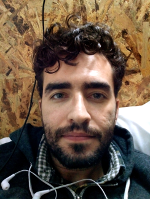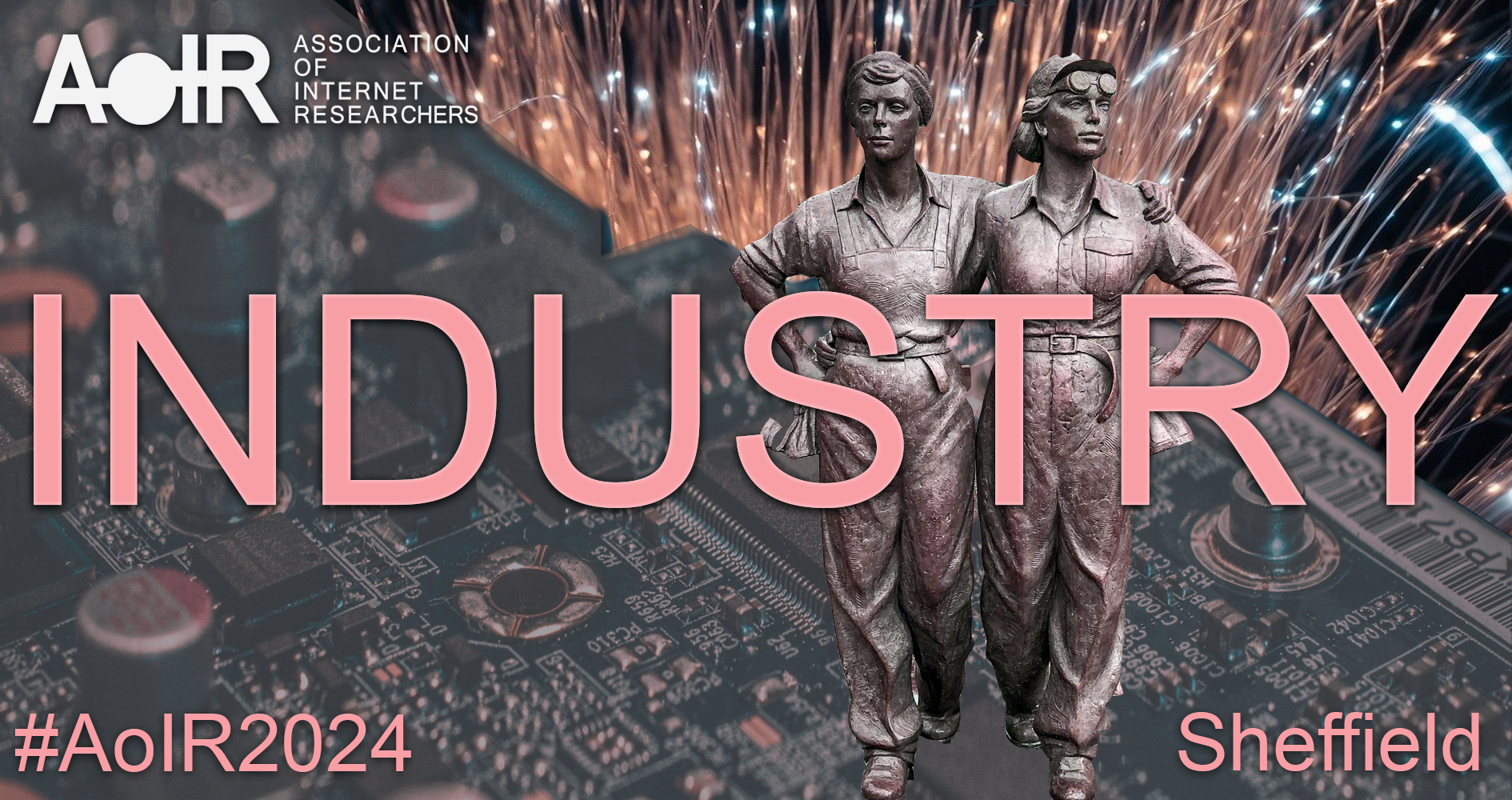Each year, through the generous donations of AoIR conference attendees, we are able to fund several travel scholarships for junior scholars to attend the conference. We want to recognize our scholarship recipients and share with you a little bit about them and their interests.
 Who are you?
Who are you?
I am André, a doctoral candidate at the graduate program in Communication of the Federal University of Minas Gerais, Brazil, and a CAPES foundation scholarship holder. I graduated from this same institution back in 2010 and have been working across the fields of digital media and media art ever since. I have previously worked with audiovisual production, particularly in experimental formats. I have also taught digital art and programming at a vocational school, managed a hack lab, and produced immersive videos for a planetarium. I hold a masters in Communication from the same institution to which I am currently affiliated, and I also took a masters in Media Art Cultures with a grant from the Erasmus Mundus joint program formed by Danube University Krems (Austria), Aalborg University (Denmark), and Lodz University (Poland).
Where are you from?
I am from Belo Horizonte, which is one of the largest metropolitan centers of southeast Brazil. Less known than other parts of the country, it grew as one of the main mining regions in the 18th century – an activity which, unfortunately, continues to be a rather significant share of the region’s economy. The university and program I am currently affiliated with is one of the main of its kind in the country, having grown and diversified in recent years. There, I am part of the Intermedia Connections Research Group, which gathers a strong group of researchers working on internet and digital media.
What is your current area of study?
Currently, I am devoted to the topic of the digital image in connective media environments. My research has a methodological orientation, with an interest in devising a digital methods approach for studying the dynamics of images’ online circulation and association but, also, the epistemic implications of applying such approaches – machine learning in particular – to our understanding of what images are and their role in contemporary communication. I believe these are becoming crucial questions as computer vision technology for image analysis become mainstream and start to alter also how image are made and put into circulation. In short, my topic is the datafication and the algorithmic treatment of the visual within online culture. Therefore, I would situate myself within the broader field of digital methods and STS, but in an intersection with the fields of aesthetics and visual culture.
Describe the research you will present at #AoIR2018.
At the conference, I will be presenting a research I have conducted with my supervisor, Carlos d’Andréa, which is titled “Studying ‘live’ cross-platform circulation of images with a computer vision API: an experiment based on a sports media event”. The study applies an experimental methodology for tracking the live circulation of images shared during the Final Draw Ceremony of FIFA World Cup 2018. We used a commercial API provided by Google which operates as a reverse image search tool for the web, with which we tracked visuals shared on Twitter. The study showed some potentials for this approach in describing different circulation dynamics across online platforms and also across geographical settings. However, the results also suggested many questions as to the inherent limits of the approach, particularly due to some opacity regarding the tool’s functioning. Besides this paper, I will also attend the doctoral colloquium, in which I will present aspects of my dissertation research.
Have you presented at AoIR in the past? If yes, what has been your experience? If #AoIR2018 Montréal is your first AoIR conference, what made you choose this conference? What do you expect from it?
This is my first time presenting at AoIR. It seems that it is a rather automatic choice for those of us researching online topics, so there was not really that much thought put into it. It is clearly one of the main places to attend at some point in one’s research track. I expect the days in Montreal to be quite busy and having a really hard time choosing which activities to attend during the conference, and I am very much grateful for the support given by AoIR as I would likely not be able to go without its support.

